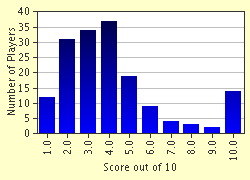Quiz Answer Key and Fun Facts
1. He was the Pope who refused to give Henry VIII a divorce from Catherine of Aragon.
2. Who hasn't read Alfred, Lord Tennyson's stirring poem 'The Charge of the Light Brigade' ("Into the valley of death rode the six hundred") ? This is the chap who gave the command for that military disaster.
3. His name was Edward Devine, and he was Australia's most famous coach driver. What was his nickname?
4. This fellow bears the sobriquet 'Father of English Song'.
5. This composer committed suicide because the woman he loved would have none of him.
6. His book 'Gentleman and Cabinet Maker's Directory' was a best seller in 1754, 1755 and 1762.
7. Aurelius Antoninus was better known by this nickname.
8. Charles II had a roving eye, and she was one of his most understanding mistresses.
9. Everyone knows that Napoleon Bonaparte enjoyed his cognac, but which of these Courvoisers was his preferred distiller?
10. Believe it or not, his dying words were "I'm bored with it all."
Source: Author
Cymruambyth
This quiz was reviewed by FunTrivia editor
bloomsby before going online.
Any errors found in FunTrivia content are routinely corrected through our feedback system.

